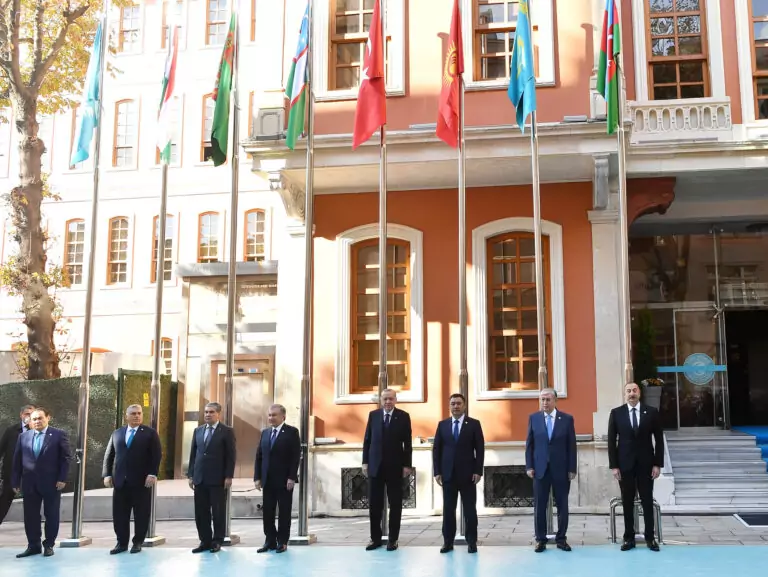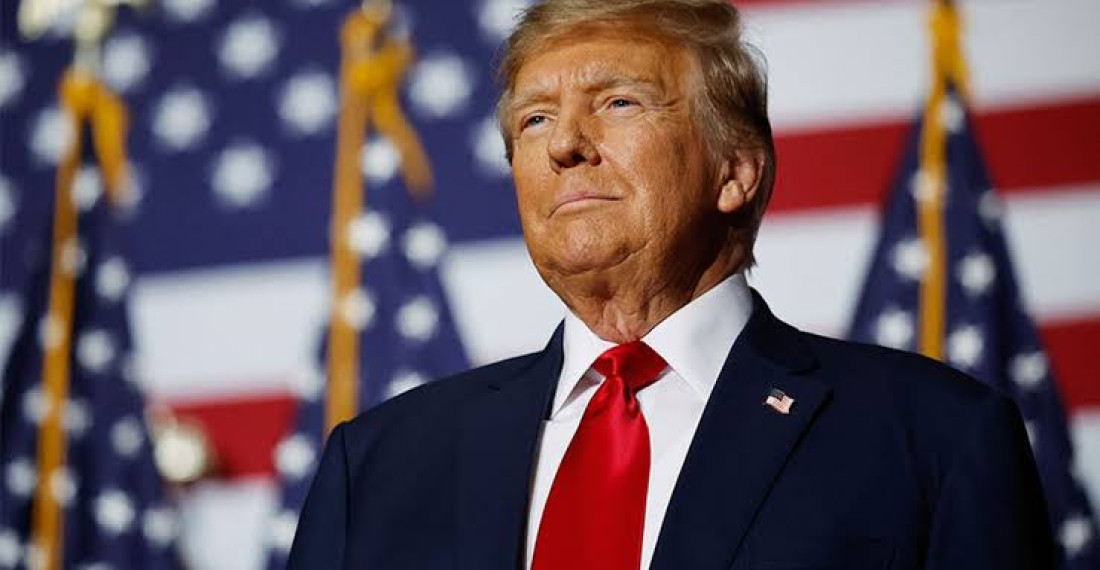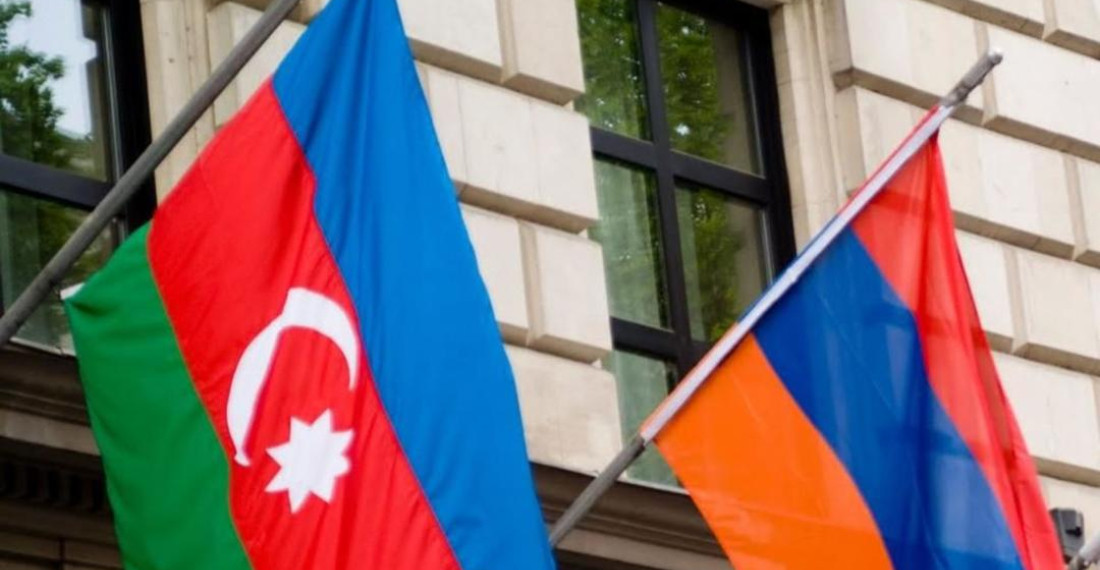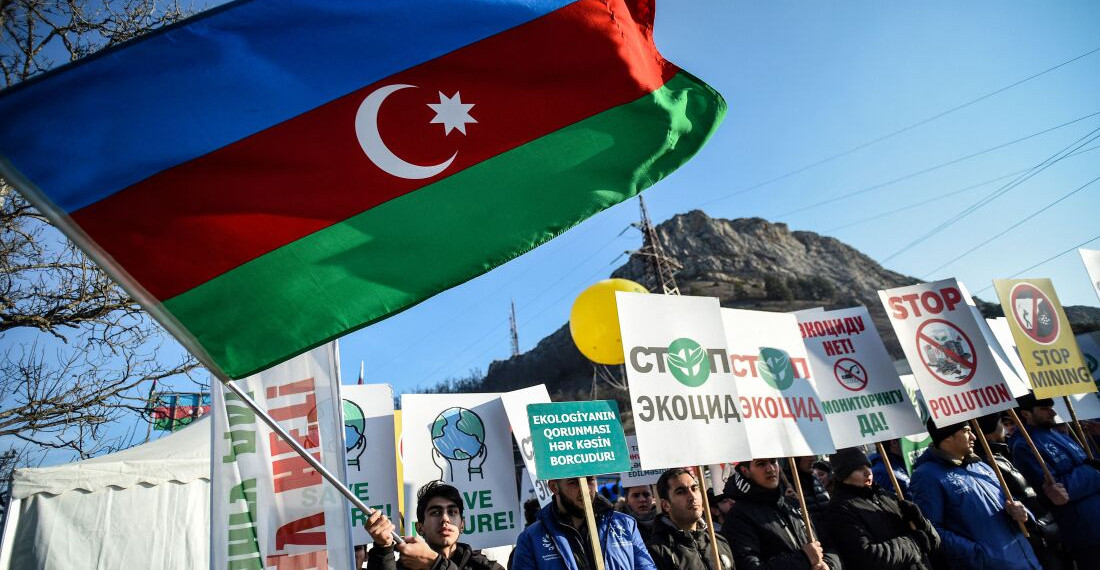Executive Summary:
-
Following the recent presidential elections, Azerbaijan turned its focus to the Organization of Turkic States (OTS) and its role in connecting the Turkic world, indicating that Baku does not intend to align with the West or Russia.
-
The expansion of defense cooperation within the OTS signifies a pivotal shift in regional dynamics, with member states increasingly prioritizing mutual security and strategic alignment as well as shaping a common foreign policy agenda.
-
The integration of Turkish defense industry companies in other member states’ defense infrastructure underscores the benefits of OTS cooperation and how the organization is emerging as a formidable force in Eurasia.
On February 14, during his inauguration speech at parliament, the re-elected President of Azerbaijan, Ilham Aliyev, outlined the country’s foreign policy priorities within the framework of regional integration projects (See EDM, February 22). He designated the Organization of the Turkic States (OTS) as the primary focus for his new term, dismissing alternative organizations without explicitly naming them (Azertag, February 14). “This is the main international organization for us because it is our family. We have no other family. Our family is the Turkic world,” he stated about the OTS, which includes Türkiye, Azerbaijan, Kazakhstan, Uzbekistan, and Kyrgyzstan, with Turkmenistan, Hungary, and the Turkish Republic of Northern Cyprus (only recognized by Türkiye) as observer states.
This stance serves as a message directed towards both Euro-Atlantic military and political structures and Russia-led integration projects, indicating that Baku has no intention of aligning with either. The OTS grants Baku significant potential to counterbalance other regional powers, assuming a more important role in Azerbaijan’s foreign policy. Similarly, the institution holds considerable importance for other member states amid escalating geopolitical tensions. Consequently, member states are moving toward deeper integration in various spheres, albeit cautiously, mindful of potential repercussions from Russia and China.
Over the past year, the OTS made significant strides towards institutionalization in areas such as the Civil Protection Mechanism, the Turkic Judicial Training Network, the Union of Notaries of the Turkic World, the Turkic Investment Fund, and the Organization of Trade Unions of Turkic States (Turkicstates.org, November 3, 2023). One central area for integration within the OTS is the development of allied relations among the member states and deeper military ties. The final communiqué from the latest summit of the OTS in Astana, Kazakhstan, on November 3, 2023, called for “closer cooperation in the field of defense industry and military collaboration” (Turkicstates.org, November 3, 2023). Member states implement joint projects in the economy, culture, connectivity, energy, and other areas. They pursue cooperation in military and security spheres, however, in a primarily bilateral format.
One of the most recent significant developments in this direction occurred on February 28 when Kazakhstan’s Parliament ratified the Treaty on Allied Relations with Uzbekistan, signed in Tashkent on December 22, 2022 (Trend.az, February 28). The Treaty, already ratified in Uzbekistan last year, upgrades bilateral relations between the two countries to a new level of collaboration (Apa.az, December 1, 2023). It also prohibits them from joining any blocs or unions and engaging in any measures directed against the other party. The treaty resembles the Shusha Declaration between Azerbaijan and Türkiye but, unlike this declaration, it falls short of committing the signing parties to support each other in the case of an attack by a state or group of states (see EDM, June 23, 2021).
Azerbaijan is a staunch supporter of defense cooperation within the OTS. “Wars and bloody conflicts break out. In this case, first of all, the main guarantor of security becomes the defense potential. I believe that cooperation between the member states in areas such as security, defense, and the defense industry should be further increased,” Aliyev said at the summit in Astana in November 2023 (Anadolu Agency, November 3, 2023).
The member states have taken significant steps in this direction, albeit mainly bilaterally, which may be followed by more multilateral initiatives. As one analyst noted about this trend within the OTS, “once non-security collective and multilateral cooperation has begun to seem ‘normal’ for the current generation of national leaders and publics in the region, the evolutionary path to greater military and security cooperation will become normalized as well” (Cacianalyst.org, December 8, 2023).
In May 2022, Kazakhstan and Türkiye, as part of the newly established “enhanced strategic partnership,” agreed on a deal for the production of Turkish unmanned aerial vehicles (UAV) in Kazakhstan, making it the first country outside Türkiye to produce Turkish drones (Astana Times, February 21). In October last year, it was announced that the production of the UAVs in Kazakhstan will start in 2024 (Caliber.az, October 15, 2023). “We set a goal not just to open production, but to transfer experience and technology so that in the future Kazakhstan can independently produce unmanned aerial vehicles,” Turkish Aerospace representative Erol Oguz said about the production in the Central Asian republic (Caliber.az, October 15, 2023).
Turkish defense industry companies ASELSAN and ROKETSAN operate in Azerbaijan and plan to expand their activities (Azernews, February 21). Reportedly, Azerbaijan is already producing one of the spare parts for the newly inaugurated Turkish fighter jet KAAN (Apa.az, March 1). Similar to other OTS members, Azerbaijan has various Turkish drones in its fleet. Baku recently introduced the Turkish UAV Akinci drones into service (Mod.gov.az, February 9). Türkiye’s combat drones were critical for the OTS members Azerbaijan and Kyrgyzstan in their conflicts with Armenia and Tajikistan, respectively (Caspianpolicy.org, July 31, 2023). In late 2023, Uzbekistan became the last Turkic state in Central Asia to acquire Turkish drones (Buzb.uz, November 17, 2023).
The expansion of defense cooperation within the OTS signifies a pivotal shift in regional dynamics, with member states increasingly prioritizing mutual security and strategic alignment. Aliyev’s reaffirmation of Azerbaijan’s commitment to the OTS underscores the organization’s central role in shaping the foreign policy agenda of its member states. Furthermore, the integration of Turkish defense industry companies in member states’ defense infrastructure underscores the tangible benefits of cooperation within the OTS framework. From joint production ventures to the deployment of cutting-edge Turkish UAVs in regional conflicts, the OTS is emerging as a formidable force in the geopolitical landscape of Eurasia. However, challenges remain in navigating the delicate balance between deepening military cooperation and managing relations with external actors such as Russia and China (See EDM, April 1, 2021). As member states continue to pursue deeper integration, they must remain vigilant against potential backlash from regional powers. Nevertheless, the trajectory is clear: the OTS is poised to play an increasingly influential role in shaping the security architecture of the Turkic world.
https://jamestown.org/program/the-organization-of-turkic-states-seeks-defense-cooperation/








